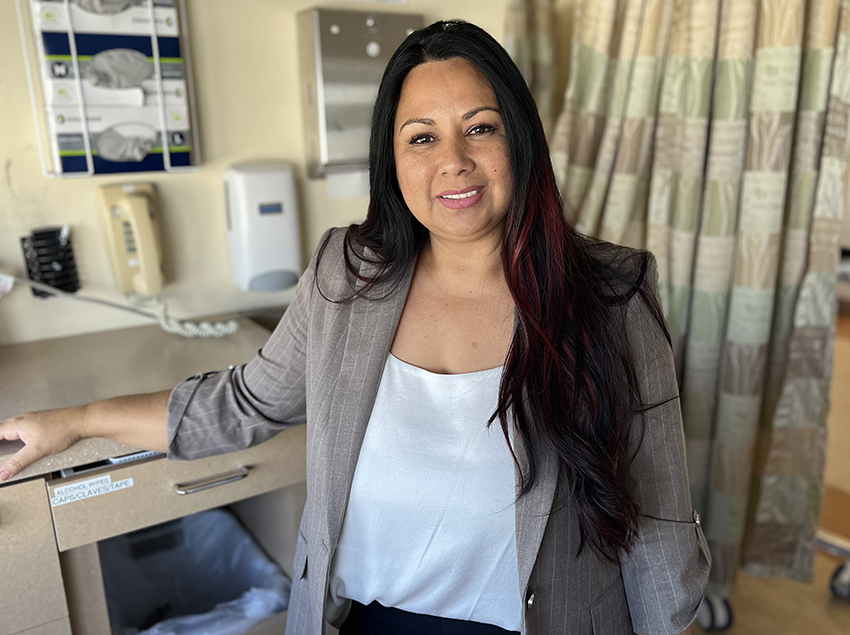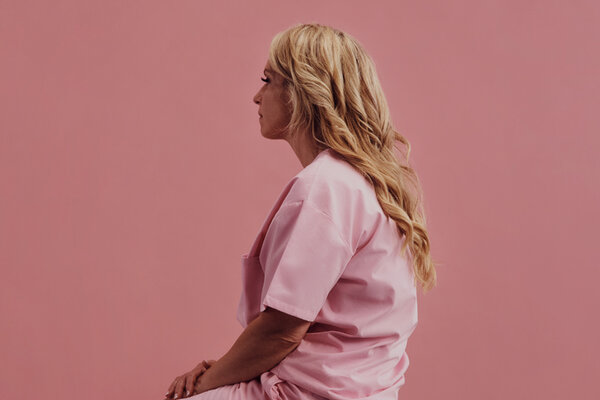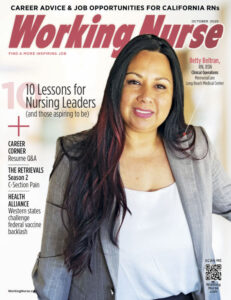Career Corner
Nurse Resume Q&A
How to present your experience clearly and confidently to your future employer

When applying for a job, small details on your resume can make a big difference. Because every nursing career is unique, it’s not always clear what to include and what to leave out.
Here are answers to some commonly asked resume questions.
• How many pages should my nursing resume be? What if I have a lot of experience?
Your resume needs to truthfully summarize all of your experience, education, licenses, certification, and training. On the other hand, it shouldn’t be TOO long. If you find your resume goes on for more than two pages, you’ll want to try to condense it. A recent grad having a one-page resume is fine.
• Should my professional references be listed on my resume?
It depends. If you’ve already asked your references for their permission, you can list them at the very end of your resume. If not, or if the document is already too long, definitely leave them off. The hiring organization will ask for references if they need them.
Some organizations I’ve worked for never even looked at professional references, seeing them as a waste of time. To be honest, I have never had a referral who gave anything other than a glowing response about a candidate. (Nobody lists a reference who will say negative things about them!)
However, some newer nurses may have only one or two previous employers. When that happens, we may ask for professional references to make sure we can complete our background check requirements.
• I’ve been a nurse for many years and worked at a LOT of places. Should I list every prior job on my resume?
All of your nursing experience should be listed, as all of it is valuable.
The key is to avoid unnecessary repetition. It’s usually sufficient to list the name of each hospital, the type of patients you cared for (e.g., labor & delivery, ICU), the dates worked, and any special procedures you performed. Make sure your resume includes these details for at least your three most recent employers.
For the rest, if you don’t have enough space, you can just include the years, the types of patients, and the facilities.
For example, I’ve seen nurses with many years of experience list their older jobs like this:
◗ 1975–1985 — Medical-Surgical: [names of hospitals in the order worked]
◗ 1985–1997 — Telemetry/Stepdown: [names of hospitals in the order worked]
If you condense your earlier experience like this, it’s a good idea to keep a separate list with all the dates and details for each earlier job, just in case there are any questions.
• Nursing is my second career. Should I list jobs, education, and credentials from my earlier work, even if it is not related to nursing?
Recruiters are familiar with this scenario, which is quite common. (For example, some nursing schools now offer “bridge” programs for students with degrees in other fields.)
If you are a second-career new grad nurse, by all means, list your prior employers. However, if you have more than two years of nursing experience, you can just list your nursing jobs.
Either way, if you have a degree in a field other than nursing, include it on your resume, along with the school and the dates attended, just like your nursing education
• I got fired from one of my previous jobs. Should I still put it on my resume?
Put all your nursing experience on your resume, even if you were fired. Nursing is a small world: Your resume might be viewed by someone you worked with in your previous organization, or who knows your coworkers from the hospital you were fired from.
Omitting a job may keep you from moving forward, so it is better to list it.
You can address why you left an organization during the interview process. If you were fired, focus on what you learned from the experience and what you’ve done differently moving forward. Honesty is the best policy.
Also, you need to be 100 percent honest if you are in any type of BRN diversion program. Remember, the recruiter or hiring manager can look up your diversion details (even during your interview!).
I have interviewed candidates who did not reveal their diversion status, or who told me a totally different story than what their BRN records showed. This was always worse than if they had just been open about their diversion status from the beginning.
• I’m an older nurse. I’m worried that if I list the date of my original nursing school graduation, people won’t want to hire me. Can I leave out the date?
As a recruiter, I am happy to see a lot of experience on a resume. Age is a protected status under federal and state employment law, and how long you’ve been a nurse is something to be proud of, not embarrassed by.
However, if you feel self-conscious, you can leave off the date of your nursing school graduation and just list the name of the school and the degree you received. The date you originally received your nursing license is in your BRN license records, so listing your graduation date on your resume is not necessary.
I hope these answers help you create the best nursing resume for your experience and situation. We’ll tackle other common questions in a future column.
LEVELL ROMEYN has 28 years’ experience as a nurse recruiter at various Southern California hospitals. Recently retired, she shares her insights with our readers in this regular column.
In this Article: Job Search Advice






